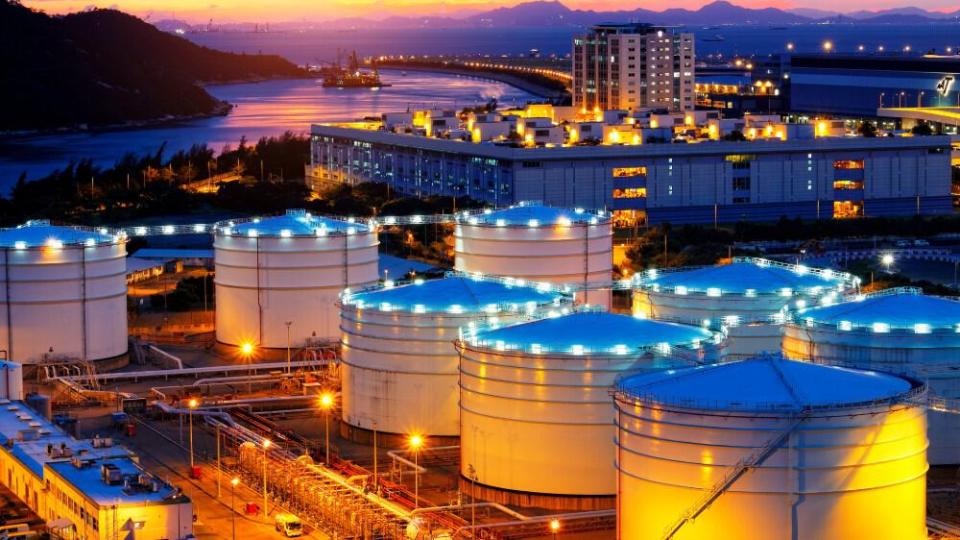If You Fear a Recession, These Are the Safest Stocks to Buy

Since the outbreak of coronavirus, investors have started to worry about the future direction of the markets. These fears aren’t without reason.
As China struggles to contain the deadly new coronavirus, it’s becoming increasingly clear that the disruption to its economy will spill over to the rest of the world.
According to Torsten Slok, chief economist at Deutsche Bank, this fast spreading virus may impact the global economy through various channels. These include global tourism, supply chains, Chinese consumer spending, lower commodity prices, and wealth effects from lower global stock prices. Slok says that last effect is probably more important than the others combined.
Put differently, the level of global anxiety and the impact of the “fear factor” in markets is probably what we should worry most about, he says in a Bloomberg report.
It’s too early to predict how badly this deadly virus will impact the markets and the global economy in general. In these uncertain times, it’s important for investors to move some cash to the safest areas of the market that generally perform better when the economic downturn hits.
Safest stocks to buy
Utility stocks, the companies that provide power, telecom services and water, fit nicely in this category of safest stocks. Surging 32%, the S&P/TSX Composite Utilities Index was the second-best group of Canadian stocks last year as a pullback in bond yields, increased appetite for low-volatility shares and improving balance sheets boosted the sector.
That has continued in 2020. They remain in the no. 2 spot, after tech, as geopolitical tensions and a viral outbreak roil global markets. You can divide energy utility stocks in two sections. The old and established players that are using traditional methods to produce energy, and then those stocks that are using renewable fuel.
From the traditional energy producers, I like Fortis Inc. (TSX:FTS)(NYSE:FTS). The St. John’s-based Fortis has a diversified asset base, providing electricity and gas to 3.2 million customers in the U.S., Canada, and the Caribbean countries. Its U.S. operations account for about 60% of its regulated earnings, while the rest comes from its Canadian and Caribbean operations.
What makes Fortis a great defensive stock is the company’s robust capital spending program and the projected dividend growth of 6% per year. Trading around $58.58 a share at the time of writing and with an annual yield of 3.31%, Fortis stock has gained more than 8% during this year. However, the company has a good pipeline of growth projects that will fuel further expansion in its earnings and payouts.
Another name that I like from Canada is Algonquin Power & Utilities Corp. (TSX:AQN)(NYSE:AQN), a regulated utility with sustainable energy assets. Its stock, after a powerful rally in the past year, is trading at the highest level since it was listed about 22 years ago.
Algonquin, through its two business groups, provides rate-regulated natural gas, water, and electricity services to over 700,000 customers in the United States. Algonquin also runs a clean-energy unit with a portfolio of long-term contracted wind, solar, and hydroelectric generating facilities, managing more than 1,250 MW of installed capacity.
This diversified revenue base has helped the utility to provide steadily growing returns to its investors. It pays $0.74 yearly dividend with a 3.4% annual yield.
More reading
Want to Pay Less Taxes? Listen to This New 2020 CRA Tax Break
CPP Pension User: 2 Reasons You Should NOT Take Your CPP at 60
The Canada Revenue Agency Taxes CPP, OAS and RRSPs… But Not This Alternative!
Fool contributor Haris Anwar has no position in stocks mentioned in this article.
The Motley Fool’s purpose is to help the world invest, better. Click here now for your free subscription to Take Stock, The Motley Fool Canada’s free investing newsletter. Packed with stock ideas and investing advice, it is essential reading for anyone looking to build and grow their wealth in the years ahead. Motley Fool Canada 2020

 Yahoo Finance
Yahoo Finance 